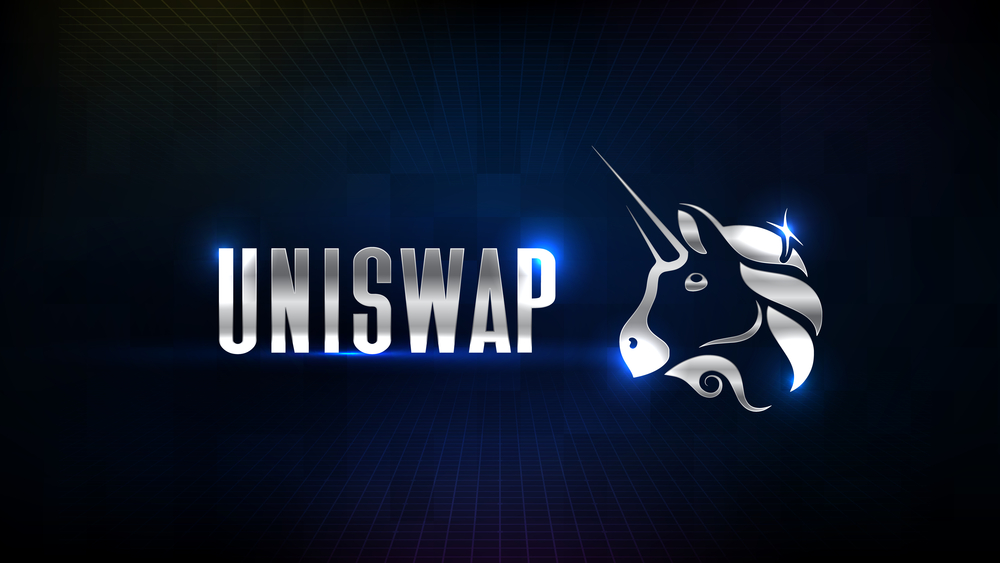Decentralization has always been a key selling point for cryptocurrencies. However, the asset class has yet to achieve the desired level of decentralization, especially on how the tokens are handled. At the heart of the burgeoning sector are centralized platforms like Coinbase and Binance that make it easy to buy, hold, and sell virtual currencies.
The need to ensure the sector is beyond the control of centralized authorities or third parties has given rise to decentralized exchanges (DEX). UniSwap is one such platform that is changing the way folks access digital currencies.
UniSwap basics
UniSwap is a virtual currency and a decentralized exchange that offers peer-to-peer trading capabilities. In comparison, one must register and share valuable information to trade digital currencies in centralized connections, which is not the case with this unique DEX platform.
With this DEX, there is no third party involved, and no registration is needed. All one needs to do to start trading is ensure their crypto wallet is linked to the app. In contrast, centralized networks are governed by a single authority and require people to place their funds under the control of the exchanges to carry out any operation.
Additionally, centralized networks operate under a system whereby buy and sell orders appear as a list with the total amount placed on the side. A buy trade is only finalized if there is a sell order of the same amount on the other side. Whenever there are liquidity problems, it is usually difficult to find people to match a trade. Consequently, liquidity problems often cause people to pay on the top to finalize transactions in centralized exchanges.
UniSwap differs from centralized exchanges as it is not owned or operated by a single entity; additionally, it leverages the automated liquidity pool to facilitate swapping. Being completely distributed means one can copy its code to establish their own decentralized trading apps. In addition, it allows for the listing of virtual currencies, therefore, strengthening the liquidity levels.
Users must pay fees in ETH to finalize transactions on UniSwap. The higher fees and slowdown in processing times are some of the deficiencies that one must contend with while leveraging the DEX.
The growing popularity of the Ethereum blockchain means it is highly congested. Therefore, the amount of fees that people pay to trade or swap coins depends on the level of congestion at the time. Thus, on the cost-benefit front, it might not be the best option when one is looking to trade small amounts as the fees could hit highs of $30 to $50.
On the processing times, Ethereum underwent a major upgrade dubbed Ethereum 2.0, expected to significantly bolster the amount of time it takes to process trades.
How it works
The exchange operates as an automated platform listing various pairs of tokens as offered by users. Prices are determined using unique mathematical formulas, and persons are allowed to initiate trades using smart contracts.
The DEX runs on two smart contracts that are executed whenever conditions are met. One of the smart contracts assists in listing coins on the platform, while the other is tasked with ensuring trades and swaps are completed when pre-set conditions are met.
For instance, if you wish to swap Ethereum for Litecoin, you will have to go to the Swap page on the peer-to-peer network and connect your crypto wallet. In return, you will have to select the amount of ETH’s you wish to convert into Litecoin.
UniSwap will, in return, calculate the amount of Litecoin it will pay based on the Ethereum selected. Once the transaction is confirmed, it is finalized by paying out the required Litecoin coins using its mathematical formulas. Additionally, it is important to note that there is always a fee paid upon the network processing swaps. It depends on the cryptocurrency one is using.
The exchange stands out partly because it allows persons to maintain control of their holdings at all times. In contrast, centralized platforms require people to transfer all their tokens to the platform for trading purposes, therefore, leaving them susceptible to being hacked.
By retaining control of private keys, users can avoid the risk of losing their assets in case of a hacking incident.
The role of users
Users play an important role in powering the UniSwap network. The platform cannot enable swapping capabilities if users do not provide the much-needed cryptocurrencies. Therefore, the users play a pivotal role in providing enough funds to facilitate swapping.
In the decentralized exchange, one does not need a person on the opposite side of the trade to complete a swap or trade. Transactions are completed automatically as long as the user provides enough liquidity.
Anyone looking to bolster liquidity on the platform needs to contribute equivalent amounts of cryptocurrencies being swapped. In the case of the Ethereum-Litecoin swapping, one will need to provide both cryptocurrencies to the pool.
In return, the DEX pays users who bolster the liquidity levels part of the fees or gas paid by people who carry out the conversion.
UniSwap the token (UNI)
UniSwap is the native currency that powers the network. It came into being as part of an effort that sought to ensure people don’t defect to DEX’s rivals. At inception, 1 billion tokens were created and 150 distributed to persons who had ever used the platform.
Consequently, the coin acts as a governance key that allows holders to vote on proposed changes to the blockchain-powered platform. Its value is dependent on how popular the exchange becomes. The more popular the peer-to-peer network becomes, the stronger the demand that should allow its value to increase, as is the case with other popular blockchain networks.
